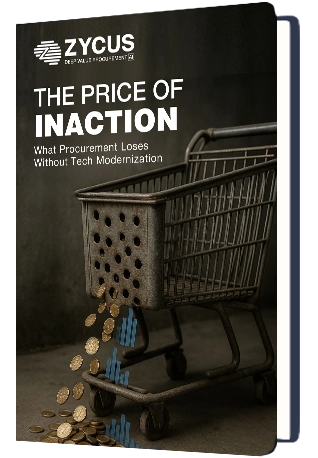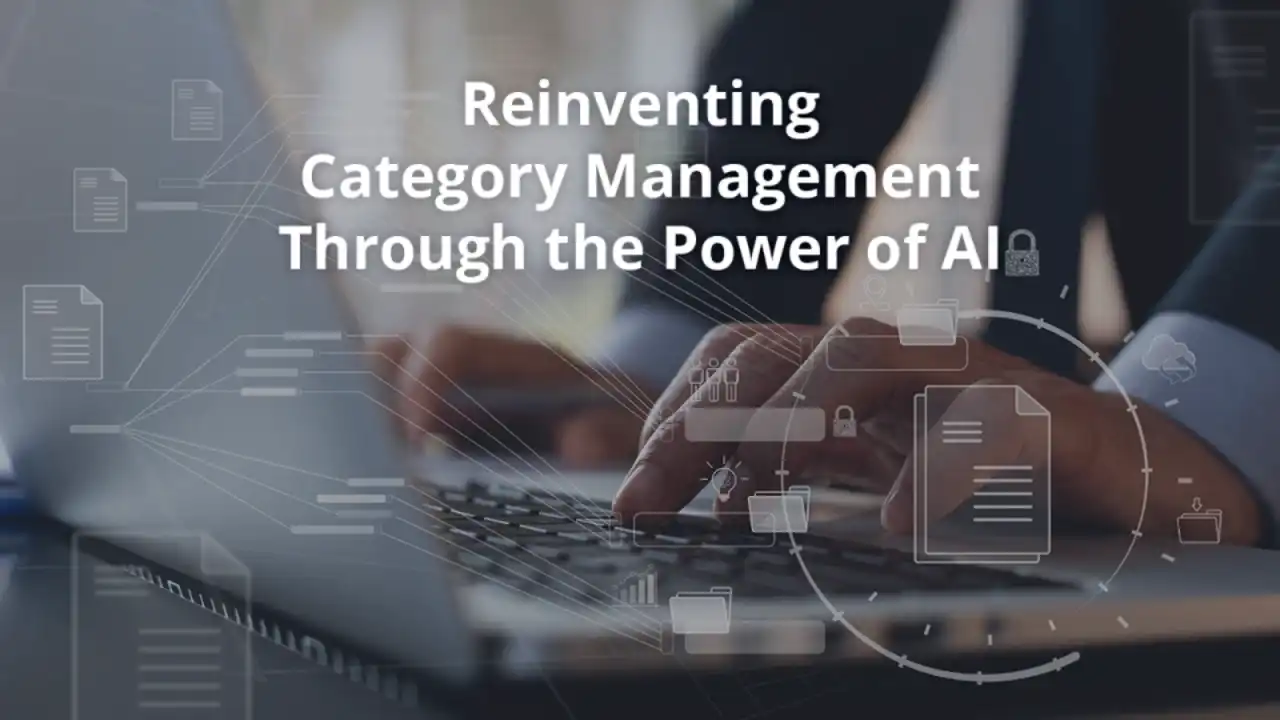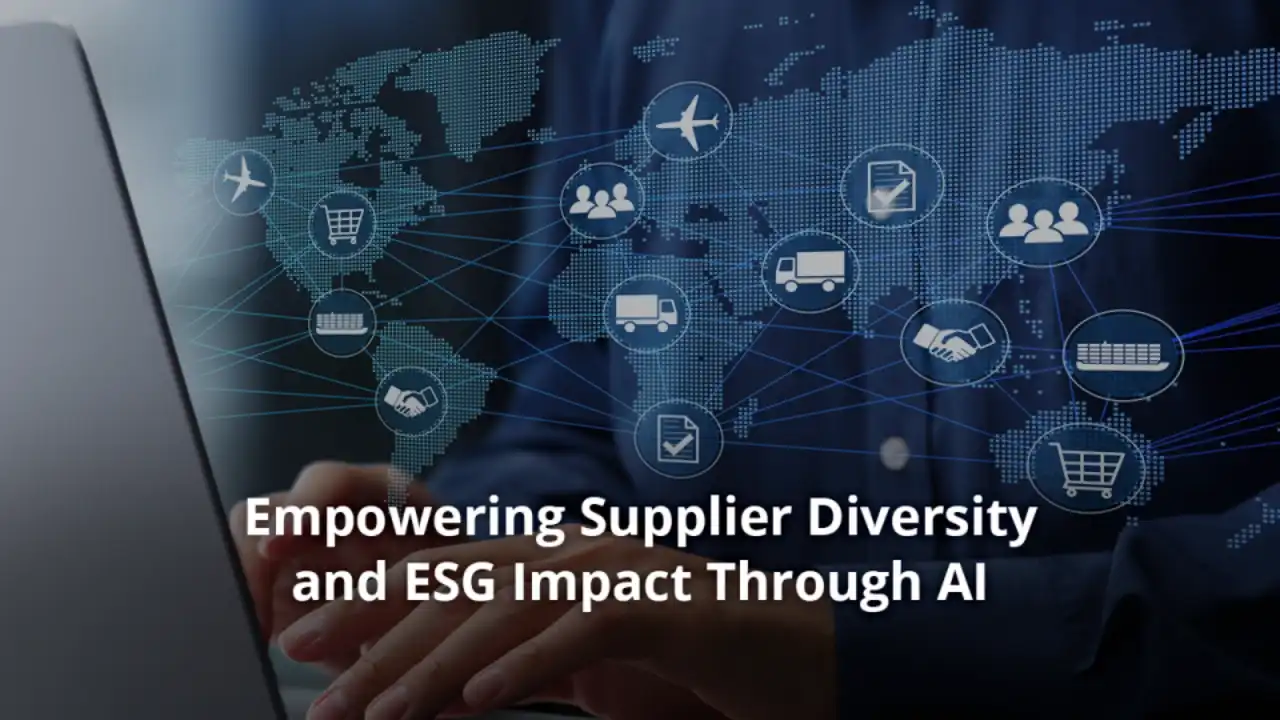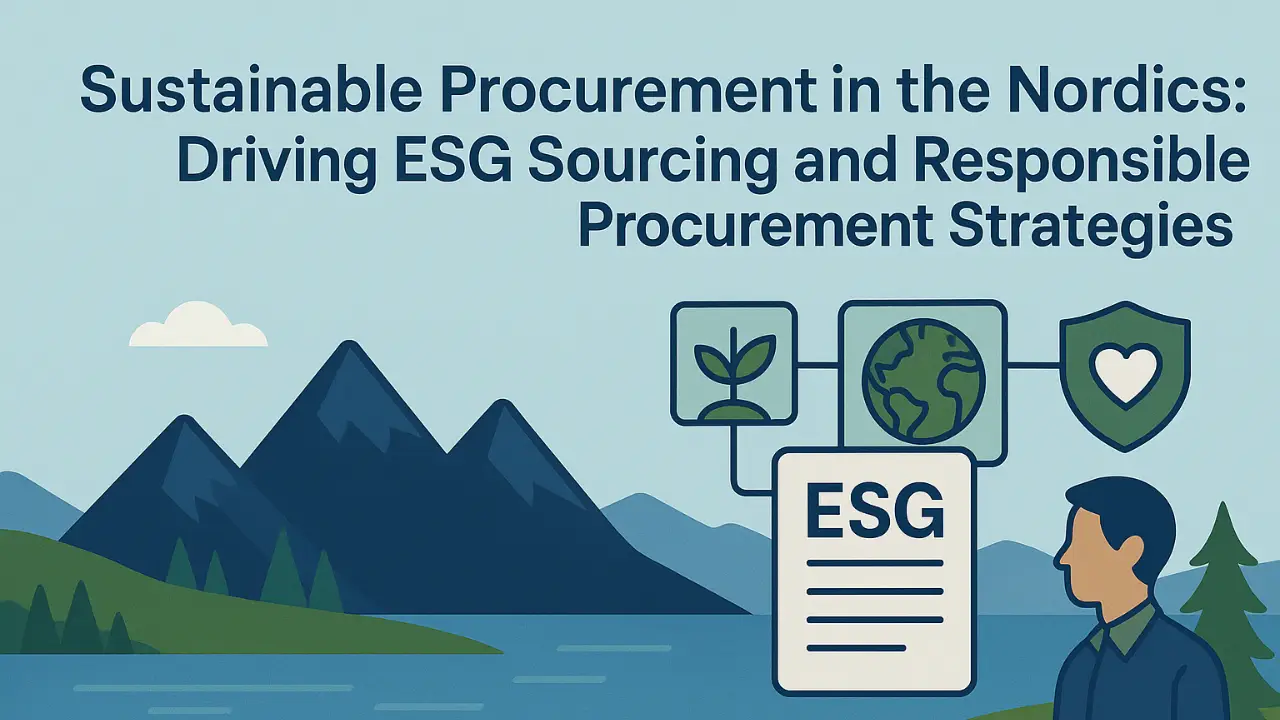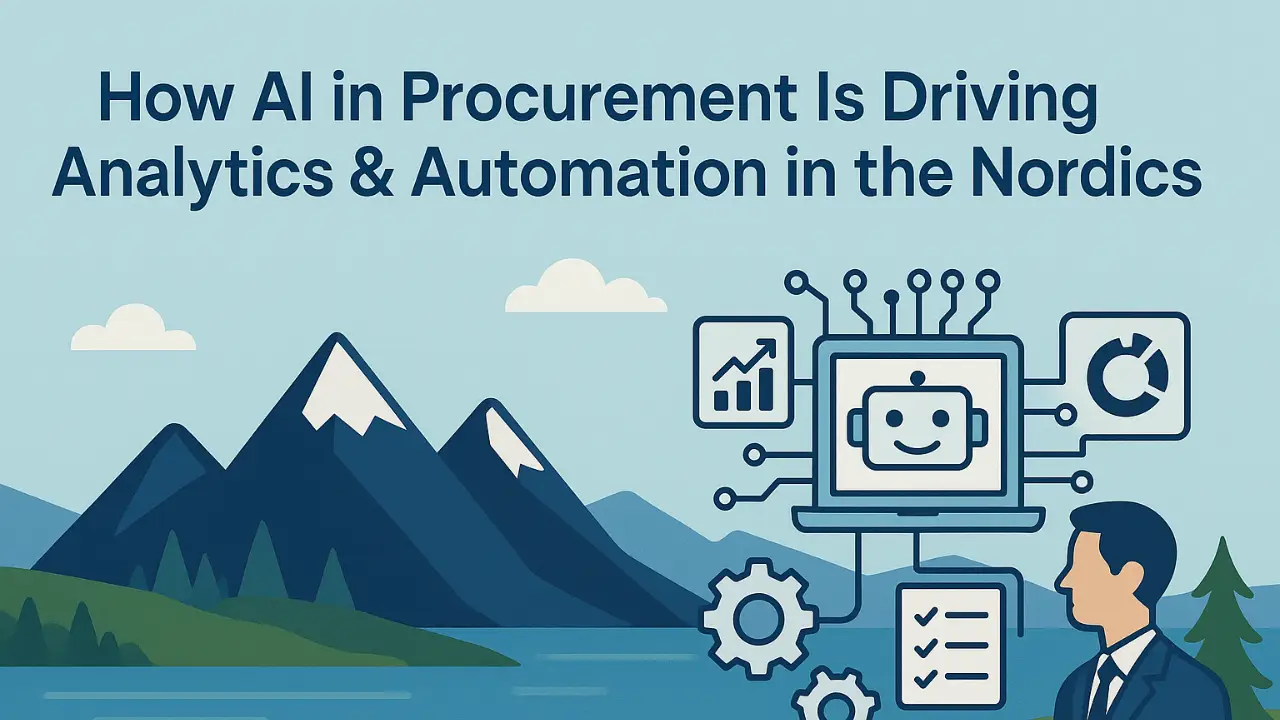The digital transformation wave is accelerating at an unprecedented pace, with procurement departments increasingly adopting cloud procurement solutions to revolutionize their operations. According to Flexera, a significant portion of enterprises—31%—spend over $12 million annually on public cloud services, signaling a fundamental shift in how organizations manage their strategic sourcing and purchasing processes. The adoption of cloud-native procurement tools is not just a technological upgrade but a strategic imperative that empowers procurement teams with unmatched flexibility, scalability, and efficiency.
TL;DR
- Cloud procurement software is transforming procurement by offering unmatched flexibility, scalability, and integration capabilities for modern businesses.
- Built with microservices, containerization, and API-first designs, these tools enable rapid deployment, seamless integrations, and real-time data access.
- Key benefits include reduced IT costs, enhanced security, dynamic scalability, and data-driven decision-making across global procurement operations.
- Organizations adopting cloud-native procurement platforms gain agility to respond to market shifts and optimize supplier relationships effectively.
- Zycus’ cloud-based procurement solutions empower businesses with AI-driven insights, robust security, and seamless integration to future-proof procurement operations.
What is Cloud Procurement Software and How Does It Work?
Cloud-native procurement tools represent a paradigm shift from traditional, monolithic software systems. Unlike legacy platforms that were rigid, complex, and costly to maintain, cloud-native procurement platforms are designed with agility and adaptability in mind. They are built using cutting-edge technologies such as microservices architecture, containerization, and API-first design principles.
This innovative architectural approach transforms how procurement teams interact with technology, offering scalability to support fluctuating demands and enabling seamless integrations with other enterprise systems. It is no surprise that cloud procurement software is rapidly becoming the backbone of modern procurement operations.
Read more: On-Premises Vs Cloud Based AP Automation Solutions: Choosing the Right Path
Core Features of Cloud-Native Procurement Platforms
The foundation of cloud-native procurement tools lies in three core architectural elements:
- Microservices Design: Rather than being a single, massive application, these tools are divided into smaller, independently deployable services. This allows for easier updates and greater agility.
- Containerization: Technologies like Kubernetes enable these tools to scale and move across computing environments efficiently. This flexibility is critical in responding to dynamic business needs.
- API-First Approach: An API-first design ensures seamless integration capabilities, enabling cloud-based procurement platforms to connect effortlessly with ERP systems, supplier databases, and analytics tools.
Download Research Report: Procurement Performance Management – Charting your way to success
These characteristics make cloud procurement systems ideal for organizations seeking operational excellence and adaptability.
4 Key Benefits of Cloud Procurement Software for Businesses
The hallmark of cloud native procurement tools is their remarkable flexibility, which addresses the limitations of traditional procurement systems. Legacy systems often required months—or even years—of complex implementation and customization, while cloud based procurement software offers transformative advantages.
1. Faster Deployment and Easy Customization with Cloud Procurement
- Procurement teams can now implement new supplier modules in days instead of months.
- Modular designs enable targeted upgrades without disrupting the entire system.
- Real-time configuration changes can be made without extensive IT intervention, reducing downtime and fostering adaptability.
For example, a global manufacturer adopting a cloud-based procurement solution implemented supplier management tools across its global offices in just three weeks, significantly reducing onboarding time for new vendors.
Explore the vast potential of Procurement Analytics to drive success beyond spend reduction.
2. How Cloud Procurement Software Delivers Dynamic Scalability
One of the most significant advantages of cloud-based procurement platforms is their elastic resource allocation, allowing organizations to scale computing resources up or down based on demand.
- Peak Performance: During high-traffic periods like year-end purchasing or major contract renewals, these systems maintain consistent performance without lag.
- Cost Efficiency: Pay-per-use models ensure optimized spending, eliminating the need for costly over-provisioning of IT infrastructure.
- Adaptability: Businesses can respond quickly to market fluctuations without additional infrastructure investments.
Download eBook: Procurement Experts Outlook 2024 and Beyond
For example, a retail giant used a cloud native procurement platform to handle a 200% increase in supplier contracts during the holiday season, achieving seamless scalability without compromising performance.
3. Seamless Integration: Connecting Cloud Procurement with ERP and Analytics
Seamless integration is a defining feature of cloud procurement solutions. Using advanced API protocols such as REST and GraphQL, these tools enable procurement teams to connect with various enterprise technologies:
- ERP Systems: Integration ensures real-time synchronization of procurement data with finance and operations.
- Analytics Platforms: Tools like Power BI or Tableau can directly pull procurement data for advanced visualizations.
- Supplier Databases: Real-time access to supplier performance metrics and risk assessments fosters informed decision-making.
Such interoperability empowers businesses to create a unified procurement ecosystem, enhancing collaboration and transparency across departments.
4. Is Cloud Procurement Secure? Key Security and Compliance Features
Modern cloud native procurement tools address the growing concerns about data security and regulatory compliance. Built with advanced security frameworks, these systems offer:
- Data Isolation: Sensitive procurement data is isolated in virtual environments, reducing the risk of breaches.
- Continuous Patching: Automated updates ensure that the system is always protected against emerging threats.
- Regulatory Compliance: Adherence to international standards like SOC 2, GDPR, and ISO 27001 ensures that organizations meet stringent legal and industry-specific requirements.
- Encryption Protocols: Multi-layer encryption protects sensitive procurement and financial data from unauthorized access.
These capabilities make cloud based procurement solutions not only efficient but also highly secure, instilling confidence in their adoption.
Zycus’ Cloud-based Procurement Software
Why Cloud Procurement is a Strategic Advantage for Enterprises
Cloud native procurement tools are more than just a technological upgrade—they represent a strategic shift that enables organizations to thrive in today’s competitive landscape.
1. Enabling Data-Driven Procurement Decisions with Cloud Platforms
Modern procurement relies on insights derived from real-time data. Cloud-native tools provide:
- Predictive Modeling: AI-powered analytics can predict supplier risks and performance issues before they occur.
- Spend Visibility: Comprehensive dashboards offer visibility into spending patterns across departments and geographies.
- Actionable Insights: Real-time data enables procurement leaders to make informed decisions quickly, optimizing supplier relationships and reducing costs.
For instance, a leading pharmaceutical company leveraged a cloud procurement system to analyze supplier risks during the COVID-19 pandemic, ensuring uninterrupted operations despite global supply chain disruptions.
2. Reducing Costs with Cloud-Based Procurement Software
By reducing reliance on expensive legacy infrastructure and offering flexible pricing models, cloud based procurement software enables organizations to:
- Reduced Maintenance Costs: With no on-premise infrastructure to manage, businesses save on hardware and IT support.
- Lower Total Cost of Ownership: Subscription-based pricing models reduce upfront costs, making these systems more accessible.
- Efficient Resource Allocation: Scalable systems ensure that businesses use resources effectively, avoiding unnecessary expenses
A mid-sized e-commerce company saved 40% in IT costs after transitioning to a cloud procurement solution, allowing them to reinvest savings into other strategic initiatives.
3. Achieving Organizational Agility with Cloud Procurement
The agility enabled by cloud procurement tools allows organizations to:
- Respond faster to market changes, such as fluctuating supplier availability or rising costs.
- Streamline global procurement operations, ensuring consistency across regional markets.
- Enhance collaboration between procurement, finance, and operations teams through shared platforms and real-time updates.
This agility is crucial in navigating the complexities of today’s global supply chains.
Common Challenges in Cloud Procurement Adoption
While cloud procurement software delivers undeniable benefits, organizations often encounter hurdles during adoption. Understanding these challenges upfront helps teams design strategies for smoother implementation.
1. Migration from Legacy Systems
Transitioning from on-premise or outdated platforms to cloud procurement can be complex. Data migration, cleansing, and standardization are often underestimated and can delay deployment. Without a clear migration plan, businesses risk losing valuable historical spend data.
2. Change Management & User Adoption
Cloud platforms often bring new workflows, interfaces, and self-service features. Employees accustomed to legacy systems or manual processes may resist the shift. Without proper training and change management, adoption rates may lag, reducing ROI.
3. Integration with Existing IT Ecosystems
Although cloud procurement solutions are API-first, enterprises often face integration challenges with ERP, finance, or supplier systems that still run on legacy infrastructure. Ensuring interoperability and real-time data sync requires careful planning.
4. Security & Compliance Concerns
Procurement teams deal with sensitive supplier, pricing, and financial data. Enterprises—especially in regulated sectors like healthcare, banking, and government, may hesitate to store this information in the cloud due to compliance mandates or regional data residency laws.
5. Measuring ROI and Business Impact
While cloud procurement offers cost savings and efficiency, organizations often struggle to link improvements directly to financial outcomes. Lack of KPIs or misaligned expectations between procurement and finance can limit visible impact.
The Future of Procurement: Why Cloud-Native Solutions Are Essential
As businesses navigate increasingly intricate supply chains, the adoption of cloud-native procurement platforms is no longer optional—it’s essential. These tools provide unmatched flexibility, scalability, and data-driven insights, enabling procurement leaders to align their operations with organizational goals and market dynamics.
Forward-thinking procurement teams are already leveraging cloud-based procurement platforms to stay ahead of the curve. By adopting these transformative technologies, organizations position themselves as leaders in the digital procurement revolution, ready to tackle future challenges with confidence and efficiency. Book a demo today!
FAQs
Q1. What is cloud procurement software?
Cloud procurement software is a digital platform hosted on the cloud that manages sourcing, purchasing, contracts, and supplier relationships with greater flexibility, scalability, and real-time insights than legacy systems.
Q2. How does cloud procurement software work?
It uses microservices, containerization, and an API-first architecture to enable rapid deployment, seamless integration with ERP and analytics tools, and dynamic scalability to match business needs.
Q3. What are the main benefits of cloud-based procurement platforms?
Benefits include lower IT costs, faster implementation, real-time data access, stronger compliance, enhanced supplier collaboration, and the ability to scale globally with ease.
Q4. How secure is cloud procurement software?
Modern cloud platforms use multi-layer encryption, continuous patching, data isolation, and compliance with global standards like GDPR, SOC 2, and ISO 27001 to ensure data security.
Q5. Can cloud procurement systems integrate with existing enterprise tools?
Yes. Cloud procurement platforms integrate seamlessly with ERP systems, supplier databases, and BI tools like Power BI and Tableau, creating a unified procurement ecosystem.
Q6. How does cloud procurement support scalability?
Cloud-native systems scale resources up or down automatically, enabling organizations to handle seasonal spikes, global expansions, or contract surges without adding infrastructure.
Q7. What cost advantages does cloud procurement software provide?
It reduces total cost of ownership by eliminating expensive on-premise infrastructure, lowering IT maintenance, and offering subscription-based pricing with pay-per-use flexibility.
Q8. Is cloud procurement suitable for small and mid-sized businesses?
Yes. Cloud procurement solutions are highly adaptable and affordable, giving SMBs access to enterprise-grade tools without large upfront investments.
Q9. How does AI enhance cloud procurement software?
AI provides predictive analytics, supplier risk insights, guided buying recommendations, and spend forecasting—helping procurement teams make smarter, faster decisions.
Q10. Why is cloud procurement software essential for the future?
As supply chains grow complex, cloud procurement enables agility, cost efficiency, security, and innovation—making it a strategic necessity for future-ready enterprises.
Related Reads:
- On-Demand Webinar: How Generative AI is Transforming APAC Businesses?
- eBook: CPONext- Procurement Leaders to Watch Out For (APAC Edition)
- Unlocking Efficiency: The Advantages of E-Procurement Solutions in the APAC Region
- Unlocking Success: Intake Management Best Practices And Key Strategies
- The Growing Significance of Intake Management in the Procurement Technology Market
- Intake-to-Pay vs. Procure-to-Pay: Key Differences and Selecting the Right Approach
- Revolutionizing Procurement Requests and Intake Management
- Revolutionizing Procurement: The Promising Future of Intake Processes
- Web Story: Simplify Procurement Intake with Powerful Tools
- Steps to Transform Your Procurement Intake Process


















































